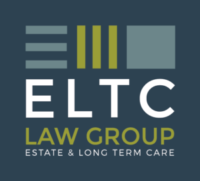One of the most important parts of estate planning is preparing for the possibility of having to enter a long-term care facility. Depending on the needs you will have, these facilities can cost many thousands of dollars per month, which can quickly eat away at even very significant retirement savings. Many people believe that Medicaid will be there to cover the costs, but that is only true once most of your other assets have been depleted.
Setting up your estate to ensure Medicaid will cover all, or at least most, of the expenses associated with long-term care facilities is extremely important. There are two major categories of this type of planning, and they depend largely on when it is done.
Crisis Medicaid Planning
Crisis Medicaid planning occurs when you (or a loved one) has either already entered a long-term care facility, or it is very likely to occur in the near future. Many people in this situation discover that they have too many assets in their name for Medicaid to begin covering the expenses.
When this is the case, it can be possible to take rapid actions to move certain assets into a trust, give them to loved ones, or take other steps to avoid having to spend them all on the long-term care facility. There are, however, a variety of restrictions on what can be done in this situation. Simply giving the money away, for example, may not be legal, and could actually put your Medicaid at risk. Working with an elder law attorney who has experience with crisis Medicaid planning can help ensure everything is done correctly to help you save as much as possible, while remaining in line with the law.
Non-Crisis Medicaid Planning
When you start planning for the potential need for long-term care well before you even know it will be needed, it is called non-crisis Medicaid planning. Whenever possible, this is the best way to plan for this possibility because there are so many additional options available. For example, you can place a large portion of your assets into a irrevocable trust, where they will not be counted as assets toward the Medicaid calculations. The sooner you begin this type of planning, the better the position you will be in should it become necessary to use a long-term medical care facility.
Contact Us
Here at Estate & Long Term Care Law Group, we have many years of experience helping people with both crisis and non-crisis Medicaid planning. Get in touch with us to go through your particular situation, and learn what options you have available. We’ll work closely with you to ensure you are able to get the care you need while keeping as much of your estate protected as possible.


